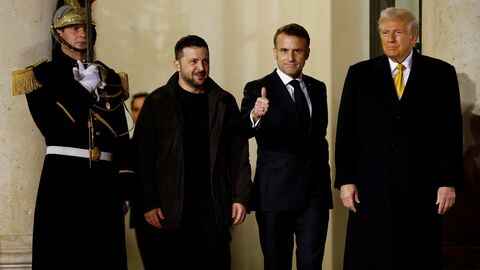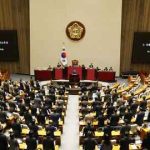In response to Trump’s remarks, President Volodymyr Zelenskyy says a truce should include assurances that the conflict won’t be rekindled.
Ukrainian President Volodymr Zelenskyy and the Kremlin have listed their demands in response to US President-elect Donald Trump’s request for an immediate ceasefire and negotiations between Ukraine and Russia to put an end to “the madness.”
Trump stated on Sunday on his social media platform Truth Social that “Zelensky and Ukraine would like to make a deal and stop the madness,” noting that Kiev had lost almost 400,000 soldiers. “There should be an immediate ceasefire, and negotiations should begin.”
“I am familiar with Vladimir. Now is his moment to take action. China can assist. “The world is waiting.” In reference to Russian President Vladimir Putin, Trump continued.
In response to Trump’s remarks on Sunday, Zelenskyy stated that peace required assurances and was not merely a declaration.
“Effective peace assurances must be the first topic of discussion when discussing a successful peace with Russia. “Peace is the top priority for Ukrainians,” he stated on X.
“A piece of paper and a few signatures won’t be enough to end the conflict. As Putin has done before, a ceasefire with no guarantees might be rekindled at any time. We must maintain the stability of peace and not ignore occupation if we want to ensure that Ukrainians no longer suffer losses.
NATO’s retreat
In a Sunday interview, Trump also stated that if countries failed to “pay their bills,” he would “absolutely” contemplate withdrawing from NATO.
Trump stated on NBC’s “Meet the Press” that unless members are “treating us fairly,” he would “absolutely” consider withdrawing the United States from the alliance. “They have to pay their bills,” he said.
For a long time, Trump has been complaining that the US, NATO’s most powerful partner, is squandering military spending on the governments of Canada and Europe.
According to NATO and its member governments, pressure from Trump during his first term is partly to blame for the majority of the bloc’s nations now meeting voluntary military spending commitments.






